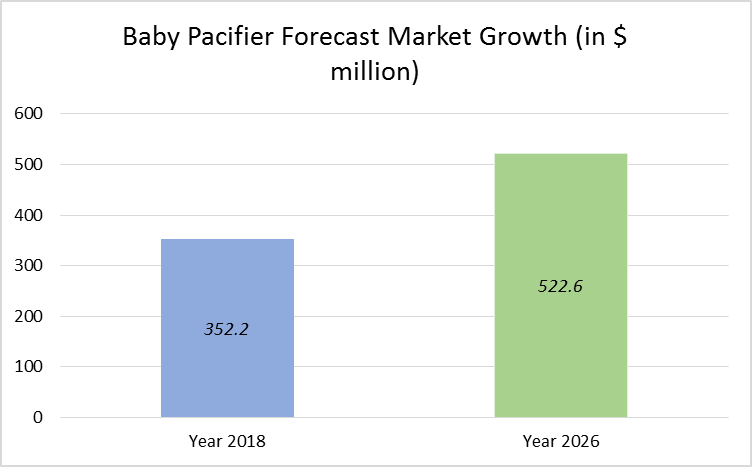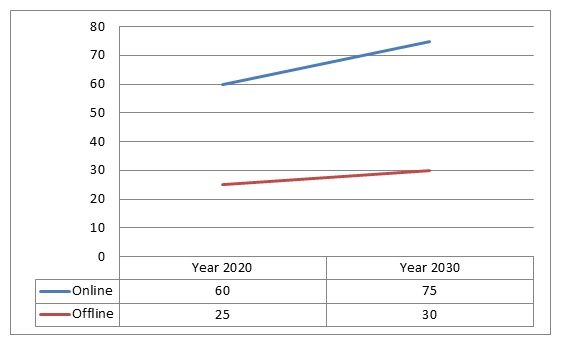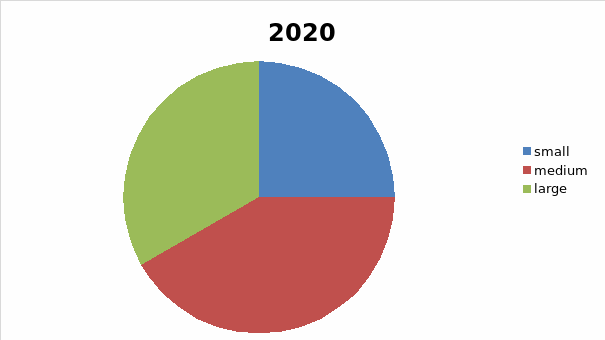Marketing Plan for Smart Pacifier
Baby Smart Pacifiers are baby soothers that help parents to calm crying babies. In the UK, parents struggle with balancing work life and restless, crying babies, hence lowering productivity rates both at home and their places of work. Technically, the baby pacifier is one of the obligatory baby products used by infants in their first year of life. As a result, there is sustained growth in market demand because of the continued births of children within the target market. Several companies have improvised different models of reaching their clients’ demands to ensure sustainable growth and development of the industry. However, there is a shortage of firms supplying smart pacifiers, which can take the temperature of the baby and send signals to the improvised gadgets, helping the parents to track changes in body temperature. This marketing plan focuses on creating awareness and launching the new smart pacifier in the UK market, maximizing profit and expanding the target market within the region.
Smart Pacifier Market Research
The target market for smart pacifier includes families with newborn babies from across the UK who have the capacity and willing to purchase this product. Globally, the baby pacifier market is one of the world’s rapidly growing economic sectors. In 2019, this market was approximately valued at more than $390 million and projected to grow above $540 by 2027 because of its dynamic nature and the growing demands worldwide (Research and Markets, 2020). Primarily, the projection in market value is a result of estimated elevation of income rates among different people alongside the growing need to work from home prompted by the current global pandemic. Over the recent years, the market has portrayed substantial evolution as a result of the implementation of innovation strategies coupled with the surge in technology usage. Around the world, different companies have presented different lines of baby pacifiers to meet the demands of consumers in the market. Concurrently, the market structure has several segments, including product types, regional basis and distribution channels available for the companies.
The introduction of this product will fill the gap of missing technologies to help monitor children’s health. Currently, parents have to buy thermometers to measure the body temperatures, some of which may be difficult to use. Including the useful function into the new model will help constantly check temperature variations and will enable parents to monitor their young ones. The UK population has high population of working mothers who need to embrace technology as a parenting technique.
Market Factors to Consider
Potential competition will be a major variable in designing the marketing strategy. Although smart pacifier is a new product in this region, there are potential competitors such as one UK-based firm known as Blue Maestro currently trying to come up with almost similar product. At the same time, economic factors will be pivotal. The financial burden of purchasing sensors and baby pacifier parts is a major challenge in this project. Moreover, sales promotion of this new product will require a lot of funds which may limit the performance in the new market. Consequently, the company will begin by conducting product trial with specified cohorts to estimate the demand value in this region. Moreover, political differences in different countries will play substantial role in shaping the outcome in this marketing plan (Thabit & Raewf, 2018). Nonetheless, the binding trade policies within this region provide crucial foundation for success in the venture.
Market Penetration Structure
Based on the product type, pacifiers are distributed either as single units or bulk sales to different markets around the world, including one piece and multiple pieces. The other segmentation structure is by market size, small, medium and large. In the ideal market, the product is distributed both online and offline. Clearly, it is important to understand the segmentation of the marketing before introducing the new commodity for the target population because such procedures will determine the sustainability of the organization (Morgan et al., 2019). Geographically, pacifiers are currently sold in North America, including countries such as the USA, Canada, and Mexico. At the same time, there are organizations selling normal pacifiers across different countries in Europe and Asia-Pacific countries. The analysis of the recent market trend provides encouraging results for investments.


Distribution by sizes

Product Development and Life Cycle
The production cycle will begin by gathering raw materials from verifiable producers, assembling the software requirement and engaging the expertise in developing the new product. Once the product is in the market, consumers will be liable in keeping the product safe and ensuring it is used based on the guidelines. The life cycle of this product lapses in six months after the start of utilization. Essentially, babies are first introduced to pacifiers towards the end of their first month to help soothe their quest for mother’s attention. During this age, the baby begins to demand more sucking encounters. The sole aim of the product is to help the parent handle their children with ease during the first month of lactation.
Manufacturing Procedure: Supply Mechanisms
Product supply requires fundamental link between the consumers and manufacturers. For Smart Pacifiers, experts will be hired to assemble specific component and store the finished products in identified outlets within the United Kingdom. Technically, the product requires critical assembling of different gadgets with the normal pacifiers to create the new product which will have installed systems to measure and track temperatures of babies. Consequently, this procedure requires innovative expertise, understanding the value of information communication and technology. Thus, the company will outsource human resource to help in creating the new consumable product in the UK. The sensor must be installed by experts to avoid any error in the new market venture because the babies’ health is pivotal in a family. The logistic challenges will entail transportation concerns. Essentially, the sensors must be bought from technology suppliers; however, they need critical care for handling. Because they will be used by highly sensitive consumers, the challenge of finding sterilizing medium will be a major priority.
Activities and timeline
The plan will be executed during the organization’s subsequent fiscal year, as from June, 2021. All preparations and arrangements should be complete by end of May this year to ensure smooth flow of activities during the venture. During the first month of the next financial year, sales management team will be in place. At the start of June, the assignment will begin by creating teams to conduct research on potential new product offerings from clients, current billing potentials and produce customer survey projection. Thereafter, the findings will help to generate a database, which will create marketing information and recommendable procedures for the product in the market. Such processes can be conducted using computer software and providing connection to the target consumer groups within various physical stores.
The aftermath of data analysis will determine which demographic region is suitable for the location of stores and warehousing to help in distributing this commodity to clients. In essence, it is important to identify a central location to help reach the highest number of target clients in this market. The use of modern data management system can help create conducive environment for business growth, including effective data handling, customer feedback, analysis and timely communication.
Implementation procedure
Marketing Organization
Because smart pacifier is a new product in UK, it is important to design the marketing mix to meet the customers’ demands within the market. As a result, the key groups targeted will include families who can access social media platforms, those who can watch mainstream media, and ones who can only view physical adverts along the streets. Internally, the company will structure the operation system to include sales marketing department, information communication team, logistic and forwarding group alongside other outlet staff members to meet the new consumers in the market.
Marketing Mix
The key factors to determine the marketing mix for smart pacifier include products, prices, distribution, and promotion. Primarily, there exist myriad uncertainties in the new venture which will require critical analysis of the business environment. The current product in the market does not have the aspect of technology to monitor temperature. Therefore, the smart device will attract many investors to help parents in handling their children during the first month.
Measuring Success
Although designing marketing plan is an instant process, realizing the benefits of the execution content is often problematic. Therefore, the success of this marketing mix will depend on key business metrics. The first component will be the use of track records in revenue generation. As a business entity, the sole aim is to make profits. The other approach will involve the use of customer retention and happiness reports. Essentially, this technique will involve the creation of a database where the sellers will link with the consumers as they purchase these products. The sustainability of growth in profit margin will be essential in determining the success levels during the first quarter of the fiscal year after the launch.
References
Morgan, N. A., Whitler, K. A., Feng, H., & Chari, S. (2019). Research in marketing strategy. Journal of the Academy of Marketing Science, 47(1), 4-29.
Research and Markets (2020). Baby pacifier market by product type, by size, and distribution channel: Global opportunity analysis and industry forecast, 2019-2026. Research and Markets, Web.
Thabit, T., & Raewf, M. (2018). The evaluation of marketing mix elements: A case study. International Journal of Social Sciences & Educational Studies, 4(4). Web.